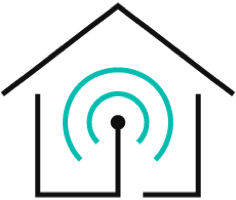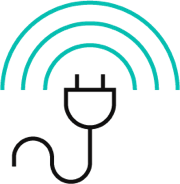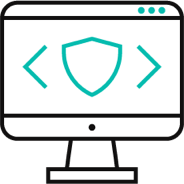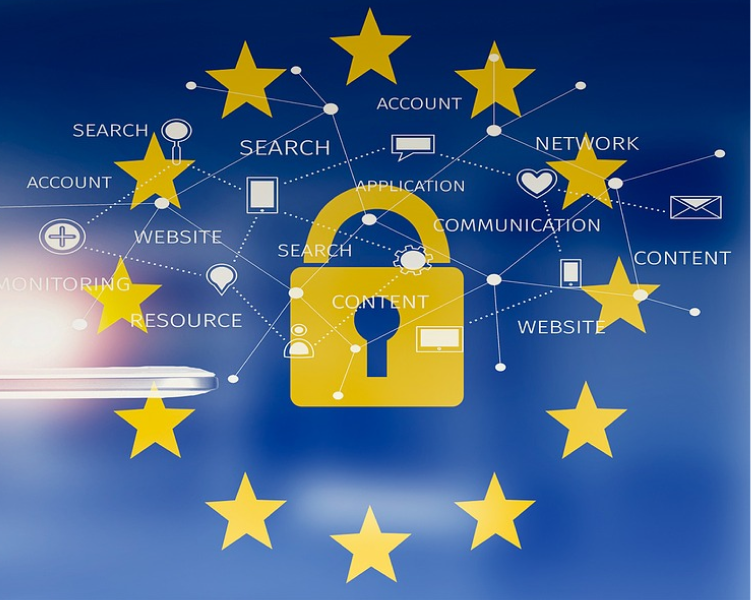Smart homes have intertwined our everyday life with innovation and technology automation in such a way that was a pipe dream for a long time. In fact, the development of smart homes was one of the most revolutionary events in the past decade.
Now that we have achieved and mastered how to use technology in our favor, it’s clear how in the near future it will become the core foundation of our life. But with the ease of technological advance also comes the threat of misuse of sensitive data by corrupted individuals. Hence we need to concern ourselves with the privacy of our data more actively.
But first, what is data privacy? It refers to the concept of proper storage of data, level of access, transmission, and overall an individual's right and ability to control their personal information.
In other words, it authorizes how your data is collected, how and where they are stored, who can access them, and how they can be shared and used. Since smart home operates by analyzing and using your personal data to predict and make decisions, data privacy is ardently important in this sector.
- Data Privacy Issues In Smart Homes
- Solutions For Smart Home Data Privacy Issues
- Ideas For Future Smart Home Privacy
- EVVR Center Lite- Solution To Your Smart Home Privacy
Data Privacy Issues In Smart Homes
As smart homes are popularized day by day, it also raises significant data privacy issues. From hacking to targeted ads, unauthorized storing of data, lack of transparency, etc are common problems that threaten the privacy of your data.
Here’s a list of common data privacy issues and how they affect the performance and credibility of smart homes.

Hacking Or Unauthorized Access
The most common privacy issue that smart home users face is the unauthorized access to their private data by hackers.
Hacking any individual's personal data without their agreement is illegal and punishable under the laws of cyber security. Usually, the data stolen this way is intended to be used against that individual such as scamming, breaking into smart homes, illegally monitoring and controlling their smart devices, stealing money from accounts, selling information, and many more.
There are a number of reasons that make your data vulnerable to hacking such as using open wireless networks, using weak and predictable passwords, entering your information into insecure sites, etc.
Unlicensed And Unauthorized Storing Of Data
To make calculated and quick decisions, smart homes constantly collect and store data to analyze users' behavioral patterns, deviations, routines, etc. It uses these data to perform the directed action more precisely and efficiently.
Most smart devices store these data locally so they are safe from the web and the users can delete them as well whenever they want. However, some devices in the smart home network may still use cloud or web-based storage to store their collected data.
Such data if exposed to vile individuals may be used negatively.
Lack Of End-to-end Encryption
End-to-end encryption assures that the data shared through your smart home network can’t be accessed and shared by third parties. Without proper encryption of data, the firewall restrictions of your home network can’t hold up well. Thus the risk of losing sensitive information to hackers stays elevated.
Also, some manufacturers deliberately collect and sell user data to third parties to perform profiling of the user for target advertising. This is why lack of transparency in devices’ privacy regulations is very important to know exactly how your data is being collected and shared.
Apart from these, there are multiple other privacy issues regarding smart homes and the number is rising every day.
Solutions For Smart Home Data Privacy Issues
We have already seen some common data privacy issues that users face regularly. Let’s see how you can solve these issues to maintain a protected and secure smart home.
- Two-Factor Verification For All Smart Devices
Setting up two-factor verification for your smart home appliances can add an extra layer of security to your home network. It makes it harder for hackers to break into your firewall restrictions.
- Strong And Unique Passwords
Simply creating a strong and unique password that can’t be guessed, significantly minimizes the risk of getting hacked.
- Routined Revision And Alteration Of Privacy Settings
Instead of simply relying on your device to protect your information, create a habit of reviewing and modifying your privacy settings. Regular inspection can help detect any unusual activity that you haven’t authorized. Also, it helps you to keep your privacy settings up to date.
- Store Data Locally
To minimize privacy concerns, opt for smart devices that use local storage to store user data in real-time. For example, EVVR Center Lite
Ideas For Future Smart Home Privacy
To establish smart home privacy more explicitly and resolve any data privacy issue in the future, we need to take immediate steps. Because only by constant modification and innovation can we expect to create an ideal smart home where our data is protected.
Here, we have listed some propositions that we think can greatly contribute to the future of smart home privacy.
Obligatory Data Encryption
Obligatory data encryption in all smart home systems can minimize unauthorized peeking into your sensitive data. Already many brands like EVVR have initiated mandatory data encryption features in all their products.
Transparency In The Privacy Policy And License
All smart products need to be transparent about their privacy license so users have full control over their data.
Use Of Blockchain Technology
Blockchain technology is a database mechanism that creates advanced chain networks by storing data in multiple blocks inside the network. So far this technology is mostly used to create outspread and flexible business networks, but it has great potential to be utilized in smart home systems.
EVVR Center Lite - Solution To Your Smart Home Privacy
EVVR Center Lite is a smart home controller that is designed for a secure home automation system. It’s customizable and built to convert your smart home into a safe fortress against privacy violations. The most notable features of this smart home hub are,
- Highly compatible over both Wi-fi and Bluetooth to all Zigbee 3.0 and Z-Wave Plus
- Local Data Storage to store your data safely
- Local network to transmit data among devices.
- Peer-to-peer connection to assure protection against unauthorized data sharing.
- Web console supports multiple plug-ins to create a vast yet seamlessly connected system.
- User-friendly app with a coherent interface
- Development kits offer room to create functionalities and customization.

Conclusion
Smart homes are built on the concept of collecting user data to analyze and predict behavioural patterns. And since we can’t exactly stop them from collecting these data for our own sake, conscious and strict steps need to be taken to protect them against common issues.
Why data privacy is important and how it relates to smart home privacy is the first step to protecting your data against any unauthorized action.
Fortunately, users are now more conscious about how they can perform their privacy rights and it compels the manufacturers to be more transparent about their policy regarding data sharing.
To learn more about smart home privacy, contact us!
















